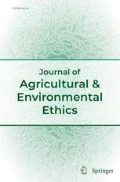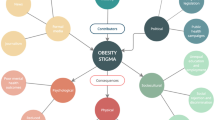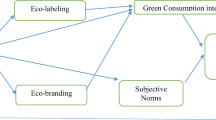Abstract
Labeling of food consumption is related to food safety, food quality, environmental, safety, and social concerns. Future politics of food will be based on a redefinition of commodity food consumption as an expression of citizenship. “Citizen-consumers” realize that they could use their buying power in order to develop a new terrain of social agency and political action. It takes for granted kinds of moral selfhood in which human responsibility is bound into human agency based on knowledge and recognition. This requires new kinds of food labeling practices. Existing research on consumer’s preferences often fails to recognize the full complexity of the motivations and intentions through which the identity of the moral self is built up in relation to food consumption practices. For citizens, not only food production practices matter but also the impact of what we eat on who we are and the ecological foot print of our food stuff. Two major drivers for this are the idea that we ourselves have to take care of our own bodies (“We are what we eat”) and that we are responsible for Planet Earth. Since both obesity and climate change have become major public concerns, also governments develop an increasing interest in defining how citizens ought to behave as consumers and how retailers and producers should facilitate such responsible behavior. Since they are supposed to defend the “bonum commune,” e.g., the public health of their citizens and a sound common future for all, a new consensus on “appropriate” consumption choices has to be found, balancing beneficence and autonomy.
Similar content being viewed by others
References
Allhoff, F., Lin, P., & Moore, D. (2010). What is nanotechnology and why does it matter?: From science to ethics. London: Wiley-Blackwell.
Andorno, R. (2004). The right-not-to-know: An autonomy based approach. Journal of Medical Ethics, 30, 435–439.
Bauman, Z. (2008). Does ethics have a chance in a world of consumers? Cambridge: Harvard University Press.
Bawa, R., & Johnson, S. (2008). Emerging issues in nanomedicine and ethics. In F. Allhoff & P. Lin (Eds.), Nanotechnology and society: Current and emerging ethical issues (pp. 207–224). Dordrecht: Springer.
Beauchamp, T. L., & Childress, J. F. (2001). Principles of biomedical ethics (5th ed.). New York: Oxford University Press.
Beekman, V. (2008). Consumer rights to informed choice on the food market. Ethical Theory and Moral Practice, 11, 61–72.
Brenkert, G. (2009). Marketing ethics. Oxford: Blackwell.
Coff, C. (2006). The taste for ethics: An ethic of food consumption. Dordrecht: Springer.
Dévényi, P. (2011). The new regulation on the provision of food information to consumers—is new always better? European Food and Feed Law Review, 4, 210–217.
Devisch, I. (2010). Everything you always wanted to eat but were afraid of consuming it. In S. Vandamme, S. van de Vathorst & I. de Beaufort (Eds.), Food, responsibility, behaviour: The case of homer Simpson (pp. 69–77). Leuven-Den Haag: Acco.
Dworkin, R. (1978). Taking rights seriously. Cambridge: Harvard University Press.
Feinberg, J. (1986). Harm to self, vol. III—the moral limits of the criminal law. New York: Oxford University Press.
Feinberg, J. (1992). Freedom and fulfillment. Philosophical essays. Princeton: Princeton University Press.
Harrison, G. G., & Hamide, S. (2009). Overweight, obesity, and related diseases. In W. Pond, B. L. Nichols & D. L. Brown (Eds.), Adequate food for all. Culture, science, and technology of food in the 21st century (pp. 129–139). London-New York: CRC Press.
Jacobsen, E., & Dulsrud, A. (2007). Will consumers save the world? The framing of political consumerism. Journal of Agricultural and Environmental Ethics, 20, 469–482.
Jotterand, F. (2007). Nanomedicine: How it could reshape clinical practice. Nanomedicine, 2(4), 401–405.
Kittay, E. (2007). Beyond autonomy and paternalism. In T. Nys, Y. Denier & T. Vandevelde (Eds.), Autonomy and paternalism (pp. 23–70). Leuven: Peeters.
Kunkel, H. O. (2000). Human issues in animal agriculture. College Station: Texas A&M University Press.
Micheletti, M. (2003). Political virtue and shopping. Individuals, consumerism, and collective action. New York: Palgrave.
Nys, H. (2005). The Belgian law of August 22, 2002 concerning the rights of patients. In Yearbook of European medical law (pp. 91–100). Lidingö (Sweden): The Institute of Medical Law.
Sooyoung, C., & Krasser, A. (2011). What makes us care? The impact of cultural values, individual factors, and attention to media content on motivation for ethical consumerism. International Social Science Review, 86(1/2), 3–23.
Thompson, P. B. (2007). Food biotechnology in ethical perspective. The international library of environmental, agricultural and food ethics (Vol. 10). Dordrecht: Springer.
VanDe Veer, D. (1986). Paternalistic intervention: The moral bounds on benevolence. Princeton: Princeton University Press.
Vo-Dinh, T. (2007). Nanotechnology in biology and medicine: Methods, devices, and applications. London-New York: CRC Press.
Ward, J., & de Vreese, C. (2011). Political consumerism, young citizens, and the internet. Media, Culture and Society, 33, 399–413.
Acknowledgments
I would like to thank the anonymous reviewers of an earlier version of this paper for their helpful comments.
Author information
Authors and Affiliations
Corresponding author
Rights and permissions
About this article
Cite this article
De Tavernier, J. Food Citizenship: Is There a Duty for Responsible Consumption?. J Agric Environ Ethics 25, 895–907 (2012). https://doi.org/10.1007/s10806-011-9366-7
Accepted:
Published:
Issue Date:
DOI: https://doi.org/10.1007/s10806-011-9366-7




